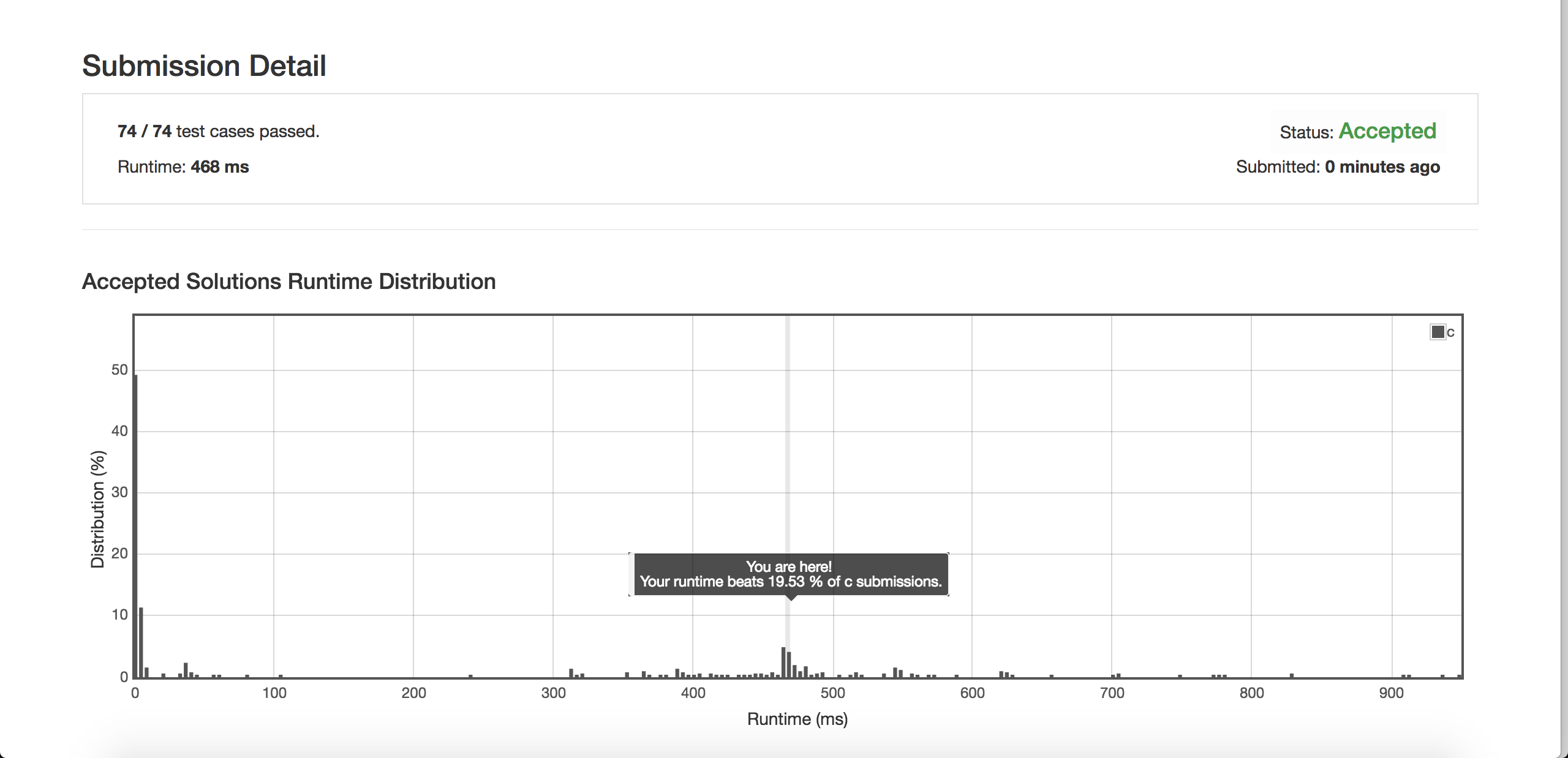Implement strStr().
Return the index of the first occurrence of needle in haystack, or -1 if needle is not part of haystack.
Example 1:
Input: haystack = "hello", needle = "ll"
Output: 2
Example 2:
Input: haystack = "aaaaa", needle = "bba"
Output: -1
int strStr(char* haystack, char* needle)
{
int hlen = strlen(haystack);
int nlen = strlen(needle);
if(nlen==0)
return 0;
if(hlen < nlen)
return -1;
for(int i = 0;i < hlen;i++)
{
int j = i;
int k = 0;
while(haystack[j] == needle[k] && k < nlen)
{
j += 1;
k += 1;
}
if(k == nlen)
return i;
}
return -1;
}
经验与教训
如果needle为空,应返回-1还是0呢?我们可以通过如下代码来验证。
#include <stdio.h>
#include <string.h>
int main ()
{
char str[] ="This is a simple string";
char * pch;
pch = strstr (str,"");
printf("%c\n",*pch);
return 0;
}
执行上述程序输出T,因此该练习中如果nlen为0,则return 0.
提交之后,我们可以看到运行的时间及排名。
可以看到我们算法的运行效率仅击败了19.53%的人,因此使用下面更高效的算法 KMP算法。
当然下面的算法不是KMP算法,参考上面的链接可以知道KMP算法需要首先计算部分匹配表,用于如下情形,比如要在ABCDEFGHIJK中查找是否存在ABCDG,比较到最后时G不等于E,因此要从字符串ABCDEFGHIJK中的B开始比较,由于我们前面的比较可知,此时可以从F开始比较,KMP算法节省了比较次数。下面的算法属于偷懒版本的KMP,通过比较第一个字符是否相等进而判断是否比较.
int strStr(char* haystack, char* needle)
{
int lh = strlen(haystack);
int ln = strlen(needle);
if((lh == 0 && ln == 0) || ln == 0 || needle == haystack)
return 0;
for (int i = 0; i <=(lh-ln); i++)
{
if(haystack[i] == needle[0])
{
if(strncmp(haystack + i, needle, ln) == 0)
{
return i;
}
}
}
return -1;
}
